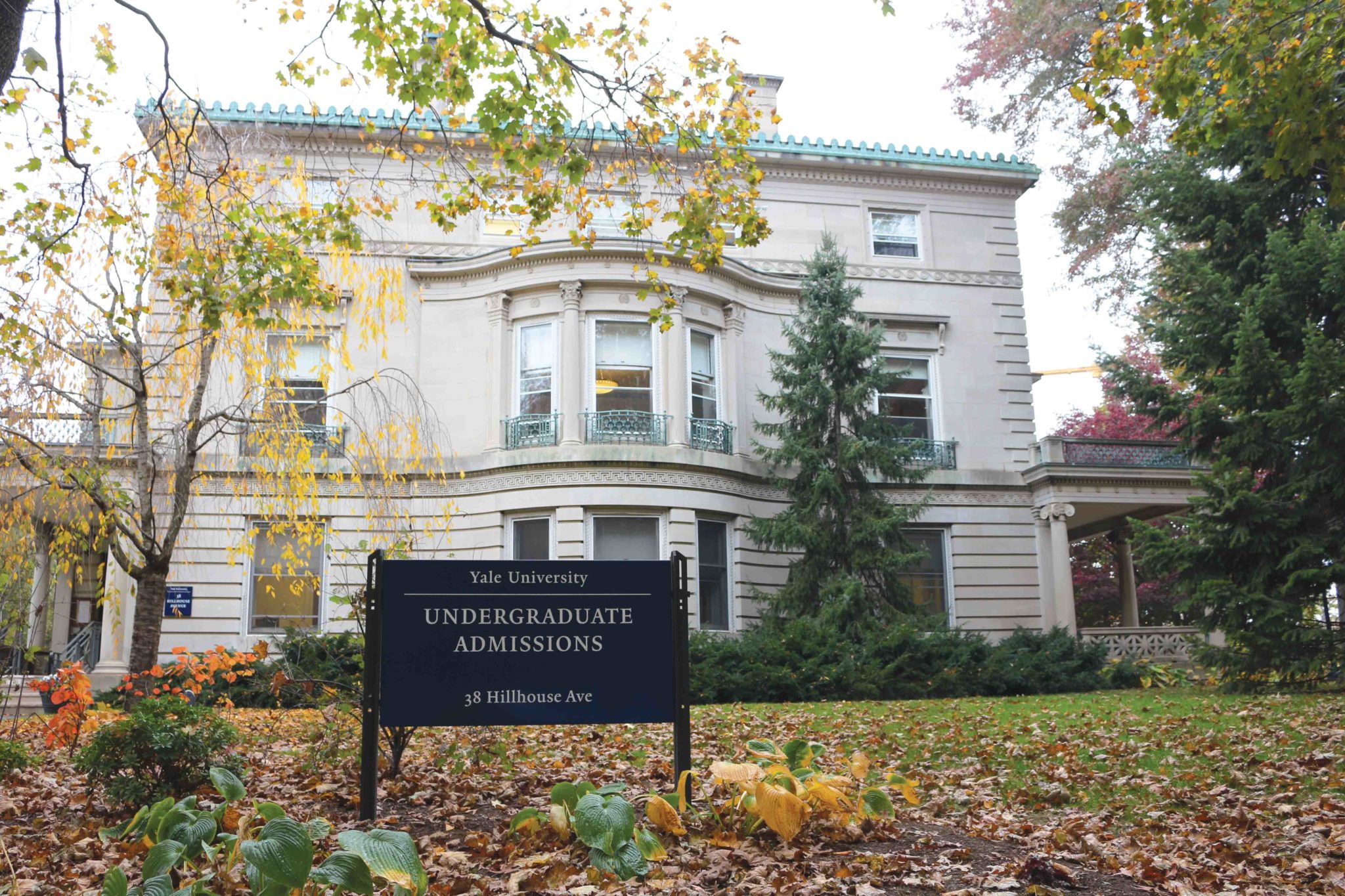
Yale College admitted 794 students out of a record 6,020 early action applicants to the class of 2023 on Friday.
The number of admitted students corresponds to a 13.19 percent acceptance rate — the lowest early applicant acceptance rate since at least 2013 and a significant drop from the 14.7 percent of students admitted last year through the early action program. Last year, Yale accepted 842 students early action, while the year before 871 were offered a spot at Yale in December.
According to Dean of Undergraduate Admissions and Financial Aid Jeremiah Quinlan, 56 percent of students who applied were deferred to the regular decision round of admissions, while 30 percent were denied admission and 2 percent were incomplete or were withdrawn.
“The Admissions Committee was very impressed with this year’s early applicant pool across every dimension” wrote Quinlan in a statement to the News. “We are pleased to offer admission to this first group of students in the Class of 2023, and look forward to admitting a much larger group of students through our Regular Decision process this spring.”
The class of 2023 will be the third of four classes to be part of the expansion of Yale College from approximately 5,400 undergraduates in 2016 to approximately 6,200 undergraduates in 2020. The planned expansion was designed to increase the population of Yale College by 200 students each of the four years.
On Dec. 3, Yale also offered admission to 55 students through the QuestBridge National College Match program, a nonprofit that helps low-income students apply to leading colleges. This is the largest number of students “matched” with Yale since Yale partnered with QuestBridge in 2007, Quinlan said.
QuestBridge scholars qualify for a financial aid award with a $0 parent share. Yale’s financial aid policy says that parents in families with less than $65,000 in annual income — and typical assets — are not required to make any financial contribution towards the cost of their child’s education, including tuition, room, board, books and personal expenses. Yale still requires these students to contribute $2,850 toward the cost of their tuition through on-campus work-study jobs, according to the Questbridge website.
Quinlan told the News that this year’s class will “take advantage of recent enhancements” to undergraduate financial aid policies. Starting in the 2018–19 school year, students who qualify for a $0 parent share will receive free hospitalization insurance coverage and will receive a $2,000 “startup grant” — to provide funding for computers, clothing and other expenses — as well as a $600 supplements in subsequent years. More than 200 first years in the class of 2022 qualified for the program.
“We know that the cost of a Yale education extends beyond just the cost of tuition,” said Director of Undergraduate Financial Aid Scott Wallace-Juedes. “The new start-up grants and hospitalization coverage ensure that our students with the greatest financial need have what they need to succeed inside and outside the classroom. I am proud that we are furthering our extraordinary commitment to making the Yale experience affordable for everyone.”
In April, as part of recruitment efforts, all admitted students in both early action and regular decision pools and their parents will be invited to Bulldog Days — events designed to showcase Yale to prospective students and their families.
Hannah Mendlowitz, the Admissions Office’s director of recruitment, told the News that this year, there will be one three-day event held on April 15–17 and a single “Bulldog Saturday” on April 20.
“We’re looking forward to working with campus partners and current students to help the newly admitted members of the class of 2023 get to know Yale,” she said. “We’ll
be welcoming admitted students to campus during … and always appreciate the time and effort that everyone on campus — from current students to faculty to staff — puts in to making those events a success.”
Earlier this week, Harvard University and Princeton University accepted 13.4 percent and 13.9 percent of early action applicants.
Skakel McCooey | skakel.mccooey@yale.edu







